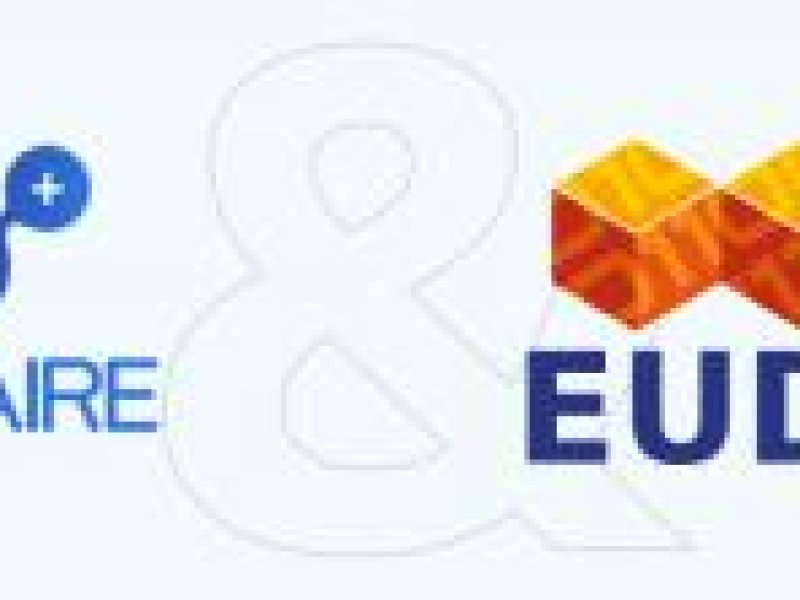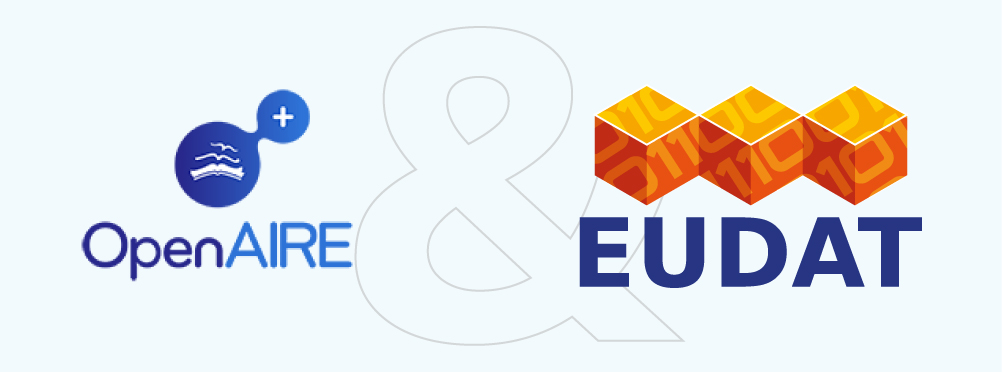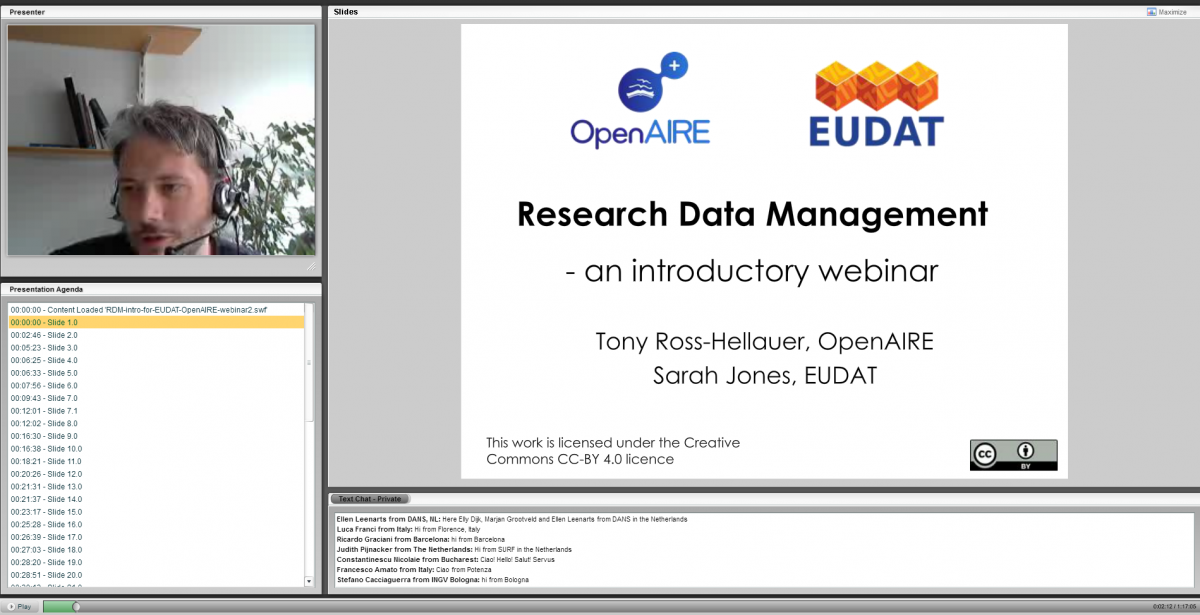
Whether measurements from sensors, results from simulations or interview recordings, modern scholarship generates incredible amounts of digital information which, properly kept and shared, holds the potential to drive new research and innovation. Recognising this, funders are implementing policies for RDM and data sharing, such as the Horizon 2020 Open Research Data Pilot, which aims to improve and maximise access to the research data generated by EU-funded projects. But good data management skills are useful far beyond complying with funder commitments: well-managed data foster good scientific practice and sharing well-formed, well-described data increases research impact.
 OpenAIRE and EUDAT co-presented this webinar which aimed to introduce researchers and others to the concept of research data management (RDM). As well as presenting the benefits of taking an active approach to research data management – including increased speed and ease of access, efficiency (fund once, reuse many times), and improved quality and transparency of research – the webinar advised on strategies for successful RDM, resources to help manage data effectively, choosing where to store and deposit data, the EC H2020 Open Data Pilot and the basics of data management, stewardship and archiving.
OpenAIRE and EUDAT co-presented this webinar which aimed to introduce researchers and others to the concept of research data management (RDM). As well as presenting the benefits of taking an active approach to research data management – including increased speed and ease of access, efficiency (fund once, reuse many times), and improved quality and transparency of research – the webinar advised on strategies for successful RDM, resources to help manage data effectively, choosing where to store and deposit data, the EC H2020 Open Data Pilot and the basics of data management, stewardship and archiving.
Learning objectives
At the end of the session participants were able to:
- Articulate the importance of research data management;
- Set clear goals regarding data archiving and sharing (both during and after a project)
- Understand the basic principles of data management, stewardship and archiving
- Identify appropriate RDM tools and services
Target audience
Introductory training for researchers, project coordinators and research administrators
Presentation and Webinar Recording
 |
|
|
|
This presentation was taken from the Research Data Management Introduction: EUDAT/Open AIRE Webinar
|
